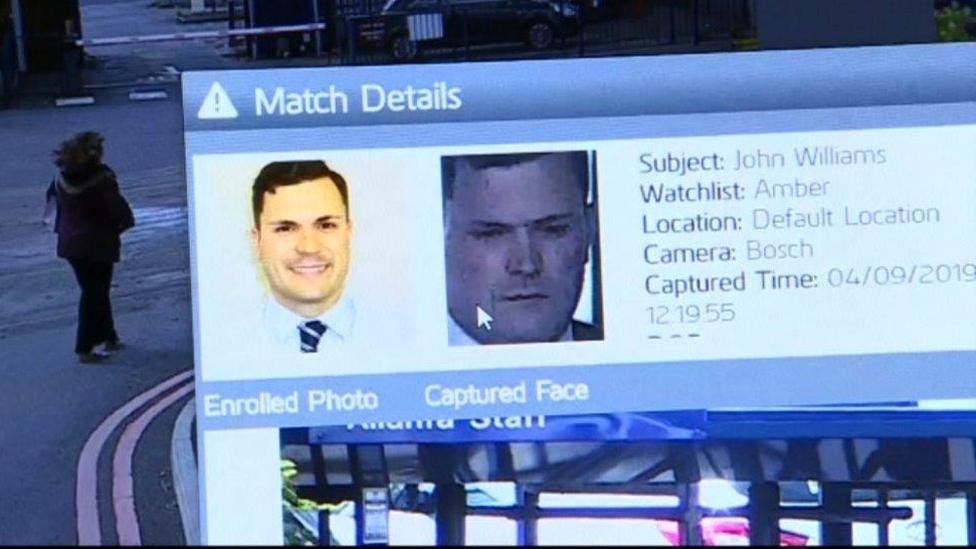Facial recognition: What led Ed Bridges to take on South Wales Police?
- Published
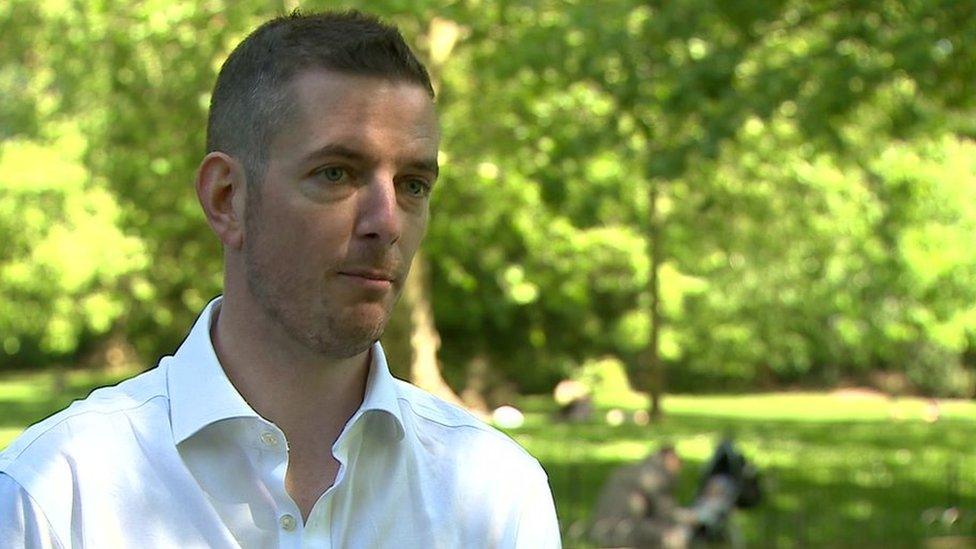
Ed Bridges has had his image captured twice by AFR technology, which he said breached his human rights
What leads a man to take a police force to the High Court?
Father-of-two Ed Bridges decided to contact civil rights group Liberty after twice being caught on camera by South Wales Police's automatic facial recognition (AFR) van.
"I didn't wake up one morning and think, you know what I really want to take my local police force to court," he said.
"It wasn't the case that I had planned to get particularly involved in, but it developed organically."
On Tuesday, the Court of Appeal ruled the use of automatic facial recognition (AFR) technology by South Wales Police was unlawful.
Mr Bridges, a former Liberal Democrat councillor for Gabalfa in Cardiff says his image was first captured while he was on his lunch break in Cardiff city centre in 2017.
But it was after it happened for a second time, a few months later while he was on a peaceful protest at an arms' fayre at Cardiff International Arena, that he decided to take action.
"On that occasion the facial recognition van was parked across the street from us," he said.
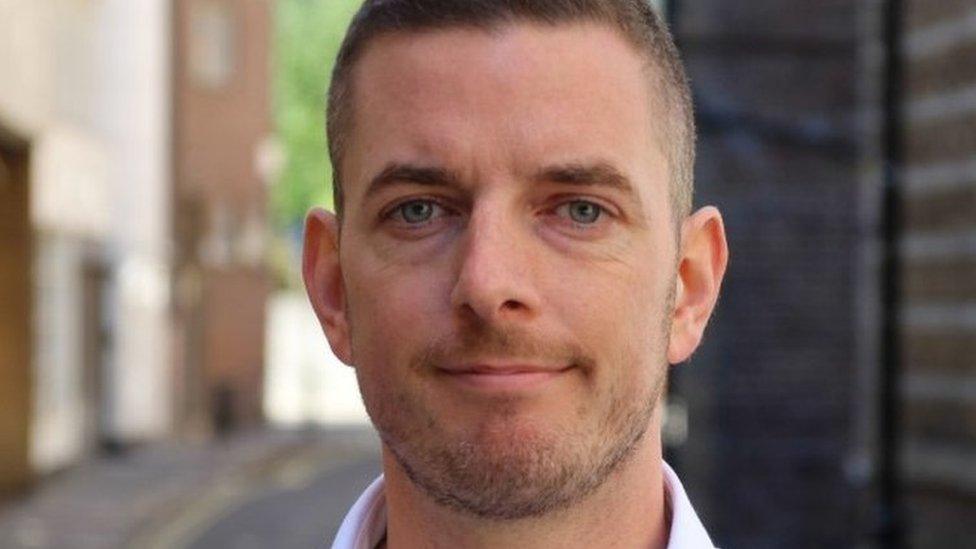
Mr Bridges is a former Liberal Democrat councillor for Gabalfa in Cardiff
"We felt it was done to try and deter us from using our rights to peaceful protest.
"I take the view that in this country we have policing by consent and the police should be supporting our right to free protest, rather than trying to intimidate protesters.
"And so it was at that point that I got in touch with Liberty."
The technology does not capture and store the images of those who are not on a watchlist - something Mr Bridges, who works in public affairs, feels the force had not communicated effectively to the public.
'Oppressive'
"I certainly think South Wales Police might have made life a lot easier for themselves if they had done a proper public consultation," he said.
"I would rather not have to bring this case. But we brought it because there was no other route for us to challenge the way that this technology is being used," he said.
"As a law abiding member of the public who just wants to have their privacy respected, I feel that this is oppressive mass surveillance being deployed on our streets."
The 37-year-old, who crowd funded towards the costs of the legal action, said he wanted the UK government to act to ensure "discriminatory technology like this is banned for good".
"We have policing by consent in this country," he said.
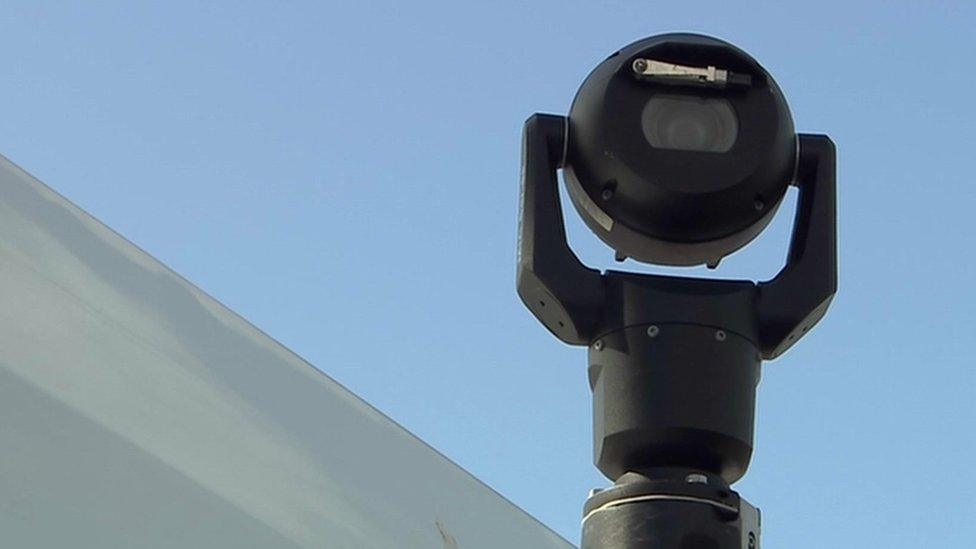
A facial recognition camera on a police van
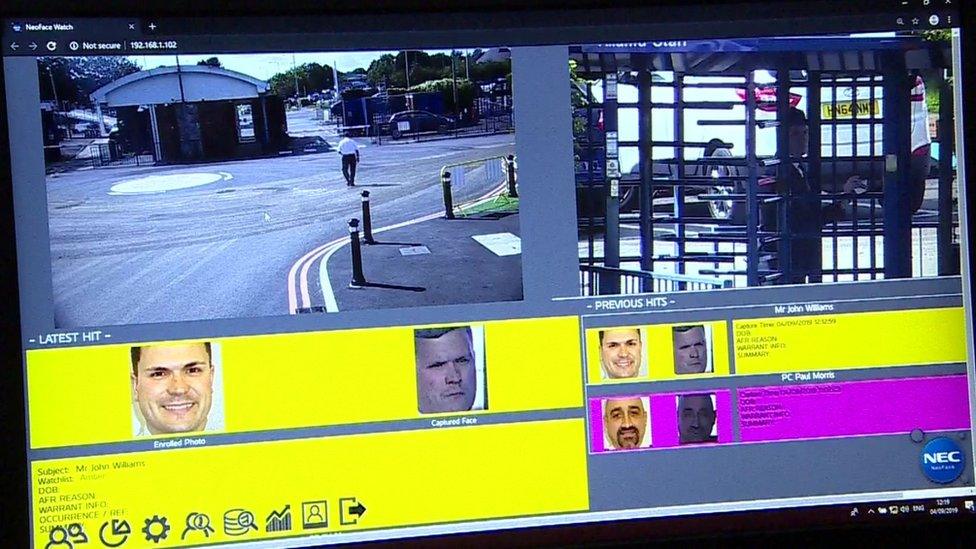
Police demonstrated the technology when it was first introduced
"The police need to have the support of the public in what they do and my concern is that by using a technology that is discriminatory and not being used in accordance with the law, that actually the police then lose the support of the public. And that's not in anyone's interest."
He is sympathetic to the task facing UK police forces: "Our argument has always been that we recognise the police are doing a difficult job with dwindling resources, but there is a balance to be struck between their need to fight crime and the public's need to feel reassured, and that their rights are being respected.
"The court of appeal was really clear that that balance has not been struck properly at the moment."
Legacy
But could he ever have imagined that a decision made at a protest would lead to a landmark ruling?
"I'm not sure at the start I realised just how significant that the case was going to be," he said.
"But what matters, really, is that the point of legal principle that we helped to demonstrate.
"I'm very pleased to have brought it and to have made a small mark on our legal history, but it's the legacy of the case that I hope will matter."
- Published11 August 2020
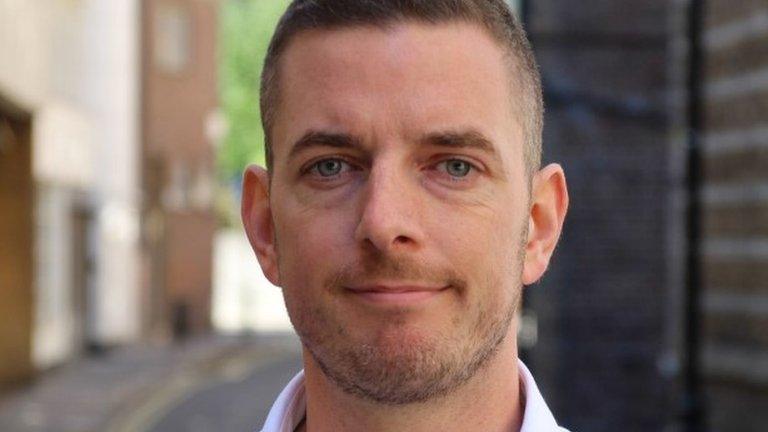
- Published21 May 2019

- Published4 September 2019
